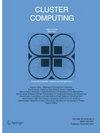Cybersecurity for autonomous vehicles against malware attacks in smart-cities
IF 3.6
3区 计算机科学
Q2 COMPUTER SCIENCE, INFORMATION SYSTEMS
Cluster Computing-The Journal of Networks Software Tools and Applications
Pub Date : 2023-10-03
DOI:10.1007/s10586-023-04114-7
引用次数: 1
Abstract
Abstract Smart Autonomous Vehicles (AVSs) are networks of Cyber-Physical Systems (CPSs) in which they wirelessly communicate with other CPSs sub-systems (e.g., smart -vehicles and smart-devices) to efficiently and securely plan safe travel. Due to unreliable wireless communication among them, such vehicles are an easy target of malware attacks that may compromise vehicles’ autonomy, increase inter-vehicle communication latency, and drain vehicles’ power. Such compromises may result in traffic congestion, threaten the safety of passengers, and can result in financial loss. Therefore, real-time detection of such attacks is key to the safe smart transportation and Intelligent Transport Systems (ITSs). Current approaches either employ static analysis or dynamic analysis techniques to detect such attacks. However, these approaches may not detect malware in real-time because of zero-day attacks and huge computational resources. Therefore, we introduce a hybrid approach that combines the strength of both analyses to efficiently detect malware for the privacy of smart-cities.

智能城市中自动驾驶汽车抵御恶意软件攻击的网络安全
智能自动驾驶汽车(avs)是网络物理系统(cps)的网络,它们与其他cps子系统(例如智能车辆和智能设备)进行无线通信,以有效和安全地规划安全旅行。由于它们之间的无线通信不可靠,这些车辆很容易成为恶意软件攻击的目标,这可能会损害车辆的自主性,增加车间通信延迟,并耗尽车辆的电力。这种妥协可能会导致交通拥堵,威胁乘客的安全,并可能造成经济损失。因此,实时检测此类攻击是安全智能交通和智能交通系统(its)的关键。当前的方法采用静态分析或动态分析技术来检测此类攻击。然而,由于零日攻击和巨大的计算资源,这些方法可能无法实时检测恶意软件。因此,我们引入了一种混合方法,结合了两种分析的强度,以有效地检测智能城市隐私的恶意软件。
本文章由计算机程序翻译,如有差异,请以英文原文为准。
求助全文
约1分钟内获得全文
求助全文
来源期刊
CiteScore
9.70
自引率
13.60%
发文量
298
审稿时长
3.0 months
期刊介绍:
Cluster Computing addresses the latest results in these fields that support High Performance Distributed Computing (HPDC). In HPDC environments, parallel and/or distributed computing techniques are applied to the solution of computationally intensive applications across networks of computers. The journal represents an important source of information for the growing number of researchers, developers and users of HPDC environments.
Cluster Computing: the Journal of Networks, Software Tools and Applications provides a forum for presenting the latest research and technology in the fields of parallel processing, distributed computing systems and computer networks.

 求助内容:
求助内容: 应助结果提醒方式:
应助结果提醒方式:


